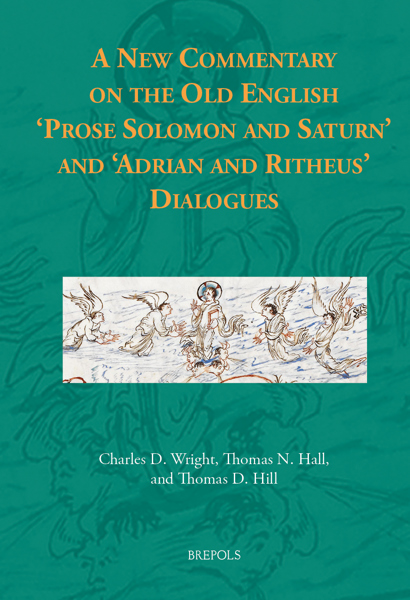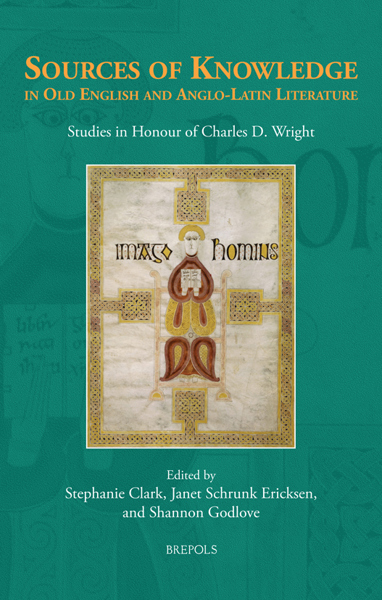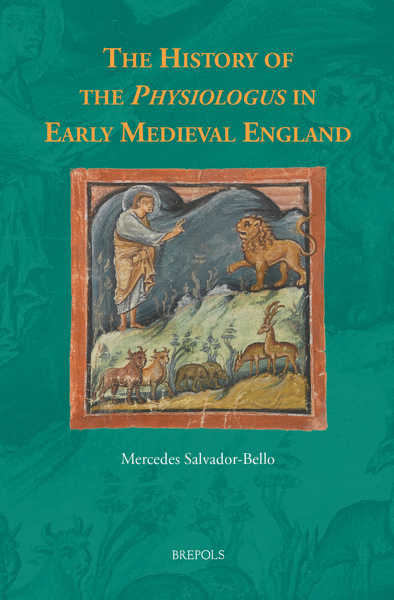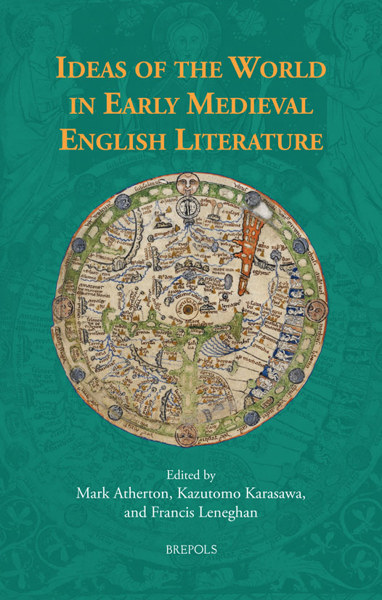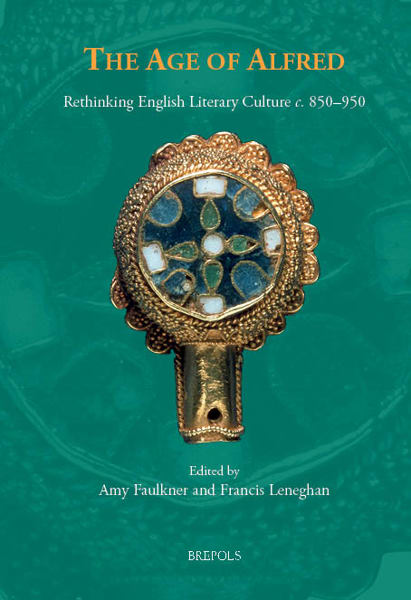
A New Commentary on the Old English ‘Prose Solomon and Saturn’ and ‘Adrian and Ritheus’ Dialogues
Charles D Wright, Thomas Hall, Thomas D. Hill
- Pages: 435 p.
- Size:156 x 234 mm
- Illustrations:8 tables b/w.
- Language(s):English
- Publication Year:2024
- € 125,00 EXCL. VAT RETAIL PRICE
- ISBN: 978-2-503-60327-8
- Hardback
- Available
- € 125,00 EXCL. VAT RETAIL PRICE
- ISBN: 978-2-503-60334-6
- E-book
- Available
This new commentary explicates the curious lore transmitted in these two Old English dialogues concerning the Bible, apocrypha, ecclesiastical history, cosmology, natural history, anthropology, and ethics. The commentary traces the origins, transmission, and transmutations of each motif in early medieval sources, citing many previously unnoticed analogues. Literary and source analysis of the two Old English dialogues is accompanied by a comprehensive survey of early medieval ‘curiosity’ dialogues of the Joca monachorum and related genres (both Latin and vernacular). The texts and translations of both dialogues are included, as previously edited by J. E. Cross and Thomas D. Hill.
"Overall, this book is a monumental achievement of careful, exacting scholarship. For medievalists seeking to understand Old English literature’s global interconnections, this book will be invaluable. One can only hope that medievalists build on this fantastic work, tracing additional parallels to expand our picture of the intellectual and literary world of medieval northern Europe." (Erik Wade, in The Medieval Review, October 2025)
Charles D. Wright is Professor emeritus of English, University of Illinois at Urbana-Champaign.
Thomas N. Hall is Professor of English, University of Göttingen.
Thomas D. Hill is Professor of English, Cornell University.
Who was not born, was buried in his mother’s womb, and was baptized after death? Who first spoke with a dog? Why don’t stones bear fruit? Who first said the word ‘God’? Why is the sea salty? Who built the first monastery? Who was the first doctor? How many species of fish are there? What is the heaviest thing to bear on earth? What creatures are sometimes male and sometimes female? The Old English dialogues The Prose Solomon and Saturn and Adrian and Ritheus, critically edited in 1982 by J. E. Cross and Thomas D. Hill, provide the answers to a trove of curious medieval ‘wisdom questions’ such as these, drawing on a remarkable range of biblical, apocryphal, patristic, and encyclopaedic lore.
This volume (which reprints the texts and translations of the two dialogues from Cross and Hill’s edition) both updates and massively supplements the commentary by Cross and Hill, contributing extensive new sources and analogues (many from unpublished medieval Latin question-and-answer texts) and comprehensively reviews the secondary scholarship on the ancient and medieval texts and traditions that inform these Old English sapiential dialogues. It also provides an extended survey of the late antique and early medieval genres of ‘curiosity’ and ‘wisdom’ dialogues and florilegia, including their dissemination and influence as well as their social and educational functions.
Introduction
Sourcing Wisdom: Commentary as Dialogue
Organizing Wisdom: The Compilatory Structure of the Prose Solomon and Saturn (SS) and Adrian and Ritheus (AR)
Transmitting Wisdom: Encyclopaedic Notes, Dialogues, and Florilegia
Disputing Wisdom: Medieval Lore Masters and Modern Scholars
List of Texts
I. Latin Curiosity Dialogues
II. Latin Wisdom Dialogues
III. Latin Commonplace Dialogues ad Florilegia
IV. Latin Hybrid Dialogues and Florilegia
V. Vernacular Dialogues
VI. Greek Dialogues
VII. Slavonic Dialogues
VIII. Encyclopaedic Notes
Commentary
I. The Prose Solomon and Saturn including Items Shared with Adrian and Ritheus
II. Items Unique to Adrian and Ritheus
Works Cited
Indices
I. Biblical and Apocryphal Citations
II. Manuscripts
III. Primary Sources
IV. Subjects
